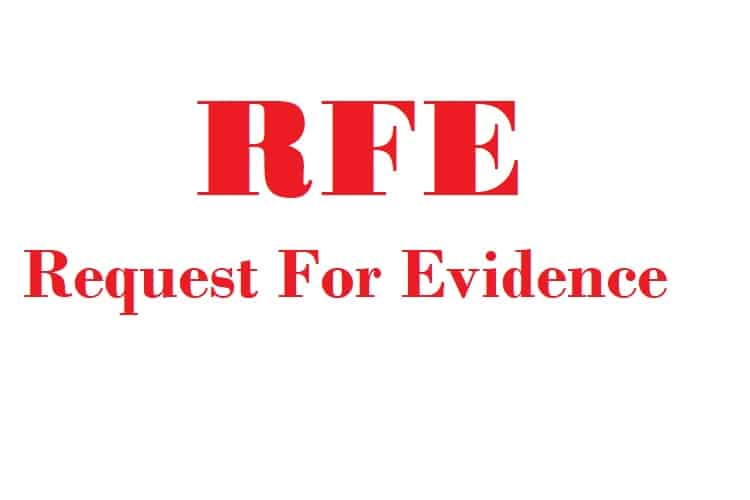Introduction
In today's globalized world, the requirement for scholastic credential examinations has actually ended up being significantly essential. Whether you're an international trainee wanting to advance your studies or an expert looking for acknowledgment for your qualifications, comprehending the subtleties of academic assessment is vital. This post looks into two popular types of evaluations: Course-by-Course Evaluations and General Equivalency By comparing these methods, we aim to assist you in making a notified choice about which course matches your needs recommendation letter for eb1a best.
What is Academic Credential Evaluation?
Academic credential evaluation is a systematic procedure where instructional credentials are evaluated to determine their equivalence in another instructional system. This is particularly essential for individuals looking for admission to foreign institutions or looking for tasks that need particular qualifications.
Why is It Important?
The significance of academic credential evaluation can not be overstated. It serves multiple functions:
Validation of Qualifications: Ensures that your degrees and diplomas are acknowledged and valued in another country. Facilitating Employment Opportunities: Companies typically need recognition of foreign credentials before thinking about candidates for positions. Academic Admissions: Numerous universities mandate examinations to ascertain eligibility for programs.Types of Academic Credential Assessment Services
There are different services readily available, but they usually fall into 2 primary categories: Course-by-Course Evaluations and General Equivalency Each serves distinct purposes based on the applicant's needs.

Course-by-Course Examinations vs General Equivalency: Selecting the Right Path
When it comes to choosing between course-by-course examinations and general equivalency, one need to think about several factors consisting of individual objectives, kind of organization or employer requirements, and specific scholastic backgrounds.
Understanding Course-by-Course Evaluations
A course-by-course assessment breaks down each course taken during your studies, assessing its equivalence to courses offered in the host nation's education system. These evaluations offer in-depth insights into individual subjects, grades received, and credit hours earned.
Benefits of Course-by-Course Evaluations
- Detailed Analysis: Provides an extensive view of all coursework completed. Specificity for Admissions: Ideal for students using to competitive programs needing specific course equivalencies. Enhanced Task Prospects: Companies might choose candidates with in-depth assessments that showcase their coursework.
Who Needs to Go with Course-by-Course Evaluations?
If you're planning to apply to graduate programs or specialized certification courses that demand particular prerequisites, then a course-by-course examination might be the perfect choice.
What is General Equivalency?
On the other hand, general equivalency assesses a degree or diploma as a whole instead of delving into private courses. It usually compares a whole curriculum versus developed standards in another country.
Advantages of General Equivalency
- Simplified Process: Normally quicker and involves less paperwork compared to course-by-course evaluations. Cost-Effective: Frequently more inexpensive due to lowered complexity. Sufficient for The majority of Jobs: Lots of employers only require evidence of degree without needing information on particular coursework.
Who Ought to Select General Equivalency?
If you're looking at task opportunities that do not require exact course information or if you're looking for more education that accepts basic degrees, then general equivalency may be all you need.
Key Distinctions Between Course-by-Course Evaluations and General Equivalency
|Criteria|Course-by-Course Evaluations|General Equivalency|| ----------------------------------|-----------------------------------------|----------------------------------------|| Detail Level|High|Low|| Time Required|Longer|Shorter|| Cost|Greater|Lower|| Purpose|Specific admissions & & work|General admissions & & work|| Usage Case|Graduate programs & & specialized fields|A lot of undergraduate & & basic jobs|

The Role of International Credential Examination Services
When browsing through these assessment processes, it's important to engage with respectable international credential assessment services. These organizations focus on assessing foreign educational credentials based on standardized criteria.
Choosing the Right Examination Service Provider
When selecting an evaluation service provider, consider:
Accreditation: Guarantee they are acknowledged by appropriate authorities. Experience: Search for companies with considerable experience in handling various instructional systems. Customer Reviews: Examine reviews from previous customers regarding their experiences.Work Experience Assessment as an Extra Option
In addition to formal education assessments, work experience examinations can likewise play an important role in establishing certifications-- particularly when it pertains to job opportunity abroad.

What is Work Experience Evaluation?
Work experience assessment examines your professional background in relation to specific job roles and responsibilities within various industries across differing countries.
Importance of Work Experience Evaluation
- Validates practical skills obtained through work. Enhances employability by showcasing real-world applications of knowledge.
How Does It Complement Academic Evaluations?
Pairing work experience assessment with academic credential assessments can provide a detailed summary that interest employers searching for well-rounded candidates with both theoretical understanding and practical application skills.
Expert Opinion Letter as a Prized Possession Asset
A professional viewpoint letter matches both scholastic and work experience assessments by supplying expert insight into the validity and importance of your qualifications based upon industry standards.
What is a Specialist Viewpoint Letter?
An expert viewpoint letter acts as an official document authored by specialists who evaluate your instructional background versus industry criteria.
Benefits consist of:
- Validating non-traditional education courses such as online courses or certifications. Offering individualized insights that enhance your application package.
FAQs about Credential Evaluation
1. What kind of assessment do I need?
It depends upon your goals! If you're looking for graduate school or specialized tasks needing particular courses, go with course-by-course assessments. For basic task applications or undergraduate admissions, basic equivalency may suffice.
2. For how long does the evaluation process take?
Typically, course-by-course assessments take longer due to their detailed nature-- frequently a number of weeks-- while basic equivalencies can expert opinion letter be https://emilianobwoj052.trexgame.net/expert-viewpoint-letters-enhancing-your-academic-and-specialist-profile finished much faster if adequate documents is provided.
3. Are there any costs related to these evaluations?
Yes! The expenses differ substantially in between service providers however normally range from $100-$500 depending upon the intricacy needed (course details vs general degree).
4. Can I use one evaluation type for multiple purposes?
While one evaluation may serve multiple functions (like entering into school and discovering a task), make sure it meets each entity's requirements; some colleges or employers define which type they accept!
5. Do I need initial files when applying?
Most services will require validated copies; nevertheless, always validate with the picked evaluator as policies vary across organizations!
6. Is it possible to appeal an unfavorable assessment?
Yes! If you believe there was an error in processing your application - lots of companies allow appeals where documented evidence can support claims!
Conclusion
Navigating through academic credential examinations can at first seem intimidating; nevertheless, comprehending the differences in between course-by-course examinations and basic equivalency simplifies this process considerably. Each has its distinct benefits tailored towards different requirements-- whether you're going for college admission or pursuing career chances abroad.
As globalization continues its relentless advance and more individuals look for recognition across borders, keeping up with such evaluative processes will empower trainees and specialists alike in achieving their objectives effectively while boosting their employability prospects globally!
Ultimately, whether you pick course-by-course examinations or go with basic equivalency hinges on personal goals-- the key takeaway being extensive research study paired with informed decision-making will lead you down the right path!